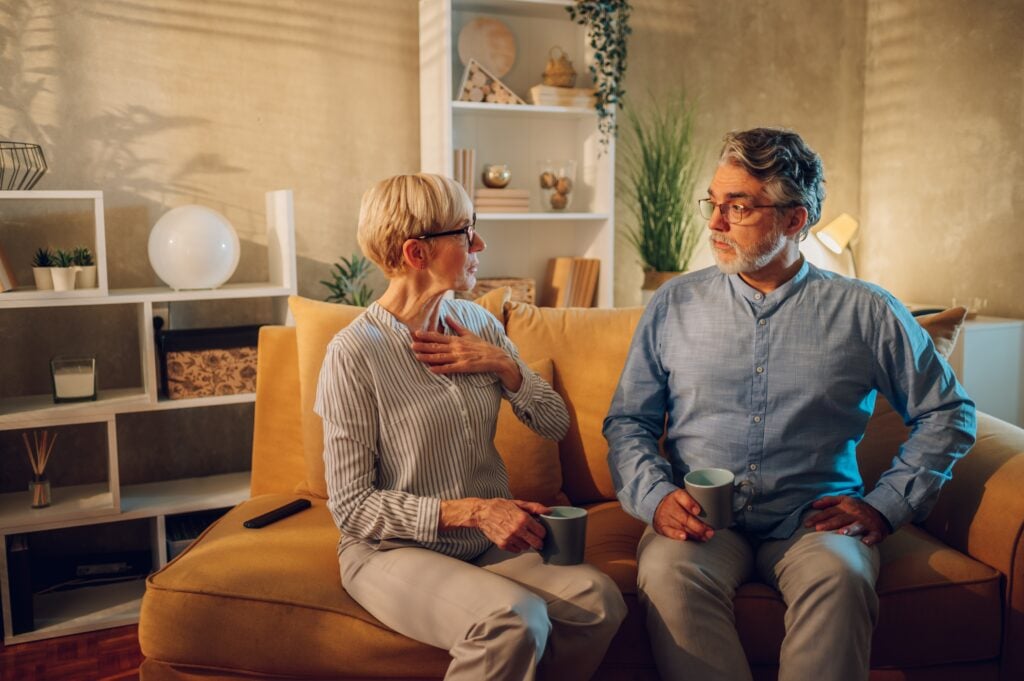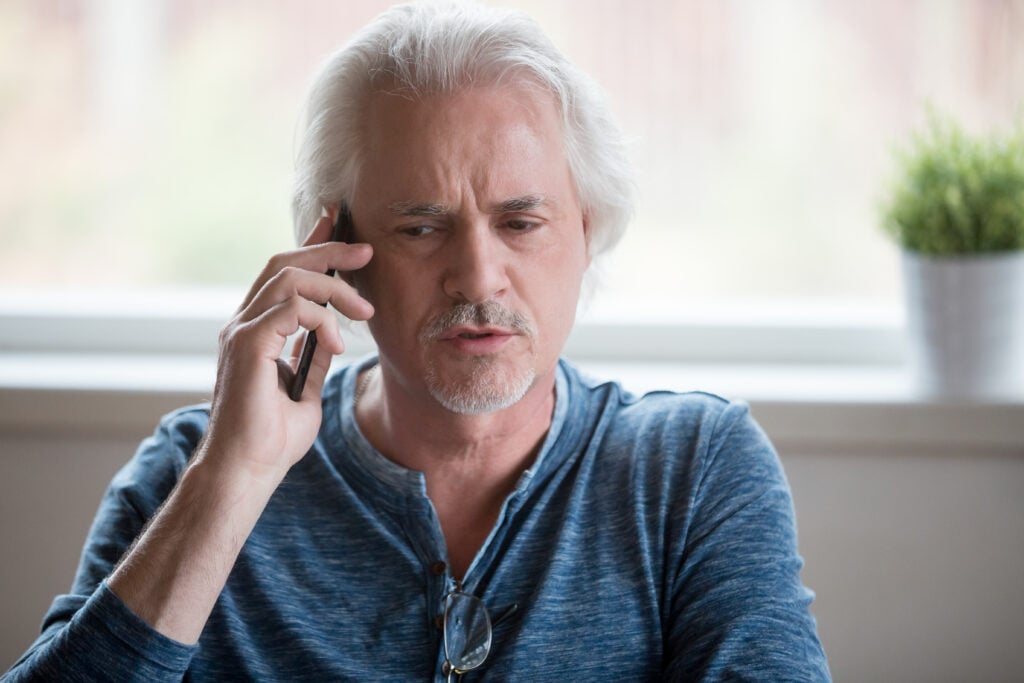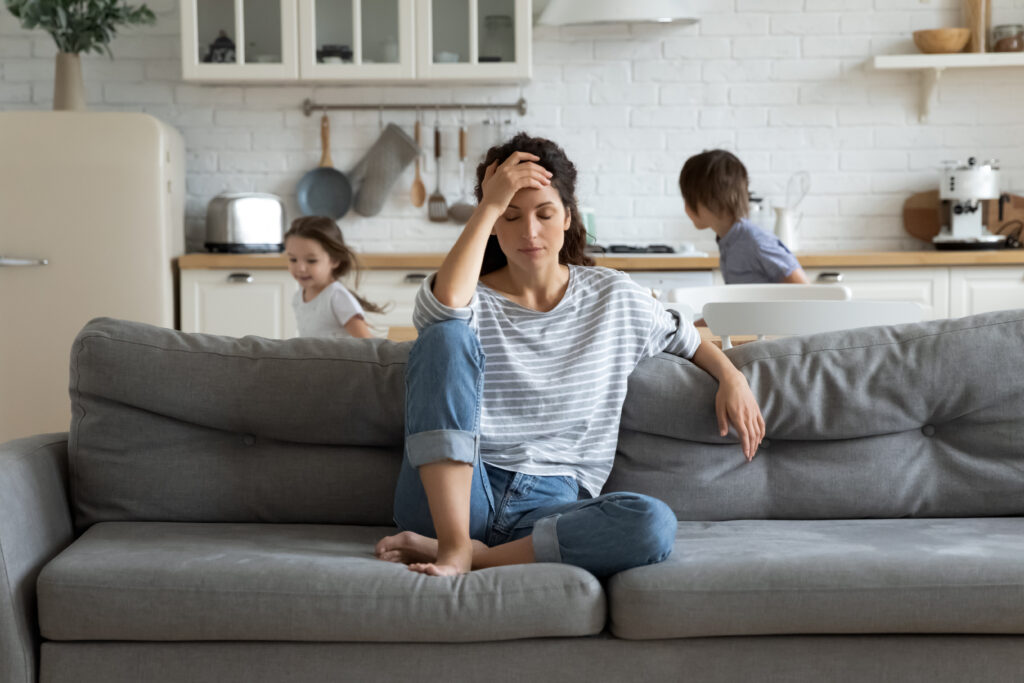Love should never come at the cost of losing yourself.

Being in love is beautiful—until it starts to feel like you’re disappearing. It happens gradually. You adjust, compromise, and accommodate until one day, you look in the mirror and don’t quite recognize yourself. Your needs, dreams, and even personality take a backseat to the relationship.
At first, it might feel like devotion, but over time, neglecting yourself for love can leave you feeling empty, unheard, and resentful.
Loving someone doesn’t mean abandoning yourself. A healthy relationship nurtures both people, not just one. If you’re constantly sacrificing your own well-being for the sake of keeping the peace or making someone else happy, it’s time to take a step back. Are you still the person you want to be? Or have you slowly faded into the background of your own life?
Here are some warning signs that you might be neglecting your own needs in the name of love.
1. You say “yes” to everything, even when you want to say “no.”

Compromise is part of any relationship, but constantly saying yes just to keep the peace is a different story. If you always agree to plans, activities, or decisions just to make your partner happy—without considering your own feelings—you’re silencing your needs.
Over time, this habit chips away at your sense of self. You might tell yourself it’s easier to go along with things, but deep down, resentment builds. Your desires matter, and a loving relationship should make space for your voice, not just the other person’s preferences, according to Aska Kolton on Tiny Buddha.
2. You’ve put your passions and hobbies on hold.

Before your relationship, you had hobbies, interests, and personal goals. But now? Those things have taken a backseat—or disappeared entirely. Maybe you used to paint, write, or play an instrument, but now you tell yourself you “don’t have time.”
Losing touch with what makes you feel alive is a major red flag. A relationship should complement your passions, not erase them, as reported by Emily Desanctis on One Love. If your life has become solely about your partner, it’s time to reclaim what makes you you.
3. You feel guilty when you take time for yourself.

Spending time alone or with friends shouldn’t come with guilt, but if you feel like you’re doing something wrong when you focus on yourself, that’s a problem, as stated by Lisa Firestone by Psych Alive. Maybe you turn down invitations, cut conversations short, or rush through personal time to avoid upsetting your partner.
A relationship that makes you feel guilty for having a life outside of it is suffocating. Love should never require you to justify your need for space or independence.
4. You’ve lost touch with your friends and family.

At first, you might have just been caught up in the excitement of love. But now, you barely see your friends, and calls to family have become less frequent. Maybe your partner doesn’t stop you from socializing, but you still find yourself prioritizing their needs over staying connected with loved ones.
Isolation can happen subtly, but over time, it leaves you dependent on just one person for emotional support. A strong relationship encourages outside connections—it doesn’t make you feel like you have to choose between love and the rest of your life.
5. You avoid conflict at all costs.

No one enjoys fighting, but if you find yourself walking on eggshells to avoid upsetting your partner, it’s a sign you’re neglecting your emotional well-being. Holding back your thoughts, opinions, or concerns just to maintain harmony isn’t keeping the relationship strong—it’s slowly erasing your needs.
Healthy love allows space for disagreements and growth. If you’re constantly biting your tongue and sacrificing your voice, you’re putting the relationship above your own sense of self.
6. Your personal goals have taken a backseat.

Once upon a time, you had dreams—career aspirations, travel plans, personal milestones. But now, those goals feel distant because your focus has shifted entirely to your relationship. Maybe you’ve delayed that big move, put off going back to school, or stopped pursuing a passion project because it doesn’t fit into the dynamic of your relationship.
A supportive partner encourages your growth, not limits it. If your dreams have been sidelined for the sake of love, it’s time to ask yourself if you’re truly happy with where you’re headed.
7. You constantly feel emotionally drained.

Relationships require effort, but they shouldn’t leave you feeling exhausted. If you’re always the one making sacrifices, solving problems, or catering to your partner’s needs while yours go unmet, it’s not love—it’s emotional burnout.
Love should be energizing, not depleting. If you feel like you’re constantly giving but never receiving, your relationship might be costing you more than it’s giving.
8. You downplay your feelings to avoid “being a burden.”

Do you find yourself minimizing your struggles, telling yourself your emotions aren’t that important? Maybe you hold back on expressing frustration, sadness, or stress because you don’t want to “bother” your partner.
Your emotions are valid. A healthy relationship is built on mutual support, not one person constantly shrinking themselves to avoid making waves.
9. Your self-esteem has taken a hit.

You used to feel confident, but now, you second-guess yourself. Maybe it’s subtle—apologizing too much, questioning your worth, or feeling like you’re never enough for your partner. When love makes you doubt your value instead of reinforcing it, something is off.
A relationship should lift you up, not make you feel smaller. If being with someone has chipped away at your confidence, it’s a sign you’ve been prioritizing their needs over your own sense of self.
10. You’ve developed anxiety around their mood and reactions.

Do you catch yourself constantly monitoring your partner’s tone, facial expressions, or behavior? Maybe you adjust your own mood or actions to prevent upsetting them. If your peace depends entirely on their emotions, you’ve given up too much of your emotional independence.
No relationship should feel like an emotional guessing game. If you’re constantly trying to keep someone happy at the expense of your own peace, you’re losing yourself in the process.
11. You ignore red flags because you don’t want to lose them.

Deep down, you might know something isn’t right—maybe they dismiss your feelings, control certain aspects of your life, or make you feel like you’re “too much.” But instead of addressing it, you brush it off because you don’t want to risk losing them.
Ignoring red flags never makes them disappear. Love should never require you to tolerate behavior that makes you feel unseen, unheard, or unimportant.
12. You feel like you wouldn’t know who you are without them.

If your identity has become so intertwined with your relationship that you wouldn’t know how to define yourself without it, that’s a sign you’ve lost yourself. Love should enhance who you are, not consume your entire identity.
You are more than just someone’s partner. If the thought of being on your own scares you because you wouldn’t know what to do with yourself, it’s time to reconnect with you.
13. You keep telling yourself it’s just a phase.

Maybe you’ve noticed some of these signs but convinced yourself it’s temporary—that things will balance out eventually. But if you’ve been waiting for that balance for months (or even years), it’s time to acknowledge the truth.
Neglecting yourself isn’t just a phase—it’s a habit that can become permanent if you don’t actively reclaim your space in the relationship. Love should never come at the cost of your own happiness, growth, and identity. It’s never too late to start prioritizing yourself again.
